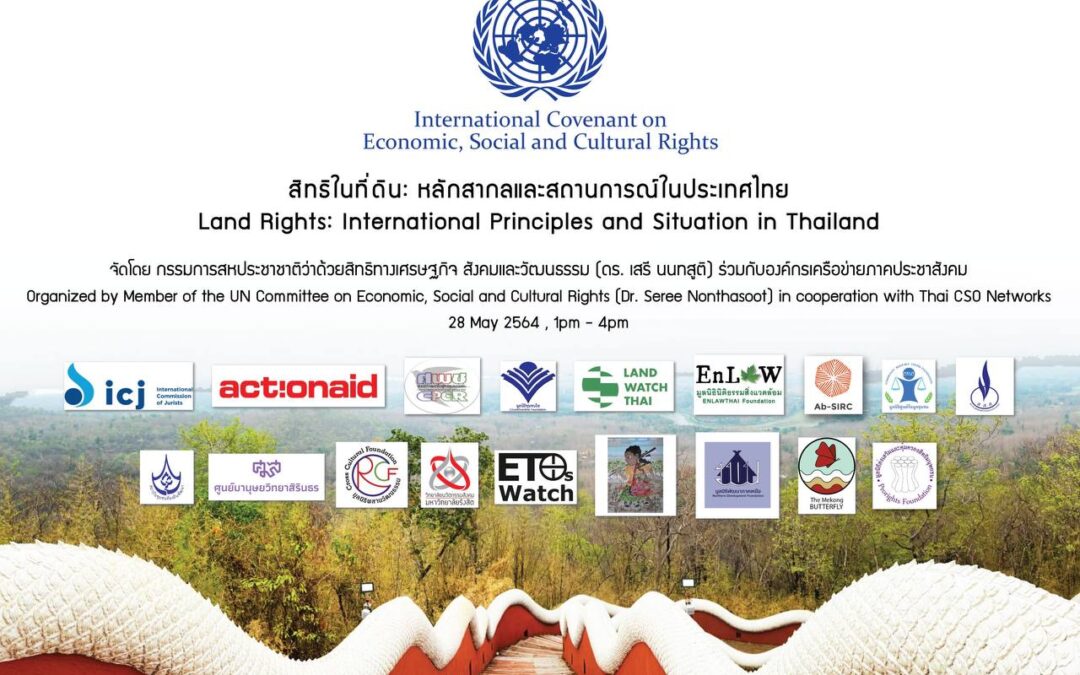
Jun 1, 2021 | Advocacy, News
Thailand’s laws and practices governing the rights of land users may result in unnecessary and disproportionate restrictions on various economic, social, and cultural rights, particularly for forest dwellers and indigenous communities, the ICJ said during discussions last week with members of Thai civil society as well as government authorities.
On 28 May 2021, the ICJ co-hosted a discussion on international human rights law and standards on land rights in Thailand, with 70 members of civil society organizations, human rights lawyers, and academics in attendance. On 4 June 2021, the ICJ spoke at a discussion on the same topic, organized by Thailand’s Ministry of Justice, bringing together 80 governmental officials from several Ministries.
“Thailand’s land regulatory laws do not adequately protect the rights of indigenous people to access their ancestral lands and natural resources and to conduct cultural practices,” said Sanhawan Srisod, ICJ Legal Advisor. “We hope the Thai government will improve its general policies for land use and tenure, especially for indigenous peoples and forest dwellers, in line with its obligations under international law.”
Dr. Seree Nonthasoot, member of the UN Committee on Economic, Social and Cultural Rights (CESCR) from Thailand, spoke at both discussions to introduce participants to the International Covenant on Economic, Social and Cultural Rights (ICESCR) to which Thailand is a party and the role of the CESCR. The CESCR is a body of independent experts from across the world established by ICESCR and tasked with providing authoritative interpretations of ICESCR in its body of jurisprudence.
“The CESCR recommended [that] Thailand […] effectively remove all obstacles to enjoyment of traditional individual and communal rights by ethnic minorities in their ancestral lands […] and ensure that forced evictions are only used as a measure of last resort. These should be addressed without any further delay,” said Dr. Seree Nonthasoot.
Specific issues highlighted by participants in the discussions included:
- Prosecution and Eviction: The use of laws ostensibly designed to counter climate change and forest conservation policies and legislatures, such as the Forest Act, the National Reserved Forests Act and the National Park Act, to prosecute forest dwellers and indigenous communities for trespassing and forcibly evict them from the land belonging to national reserved forests and national parks;
- Participation and Consultation: The inadequate participatory mechanisms and consultations with people affected by land-related policies and practices, in particular the increasing use of online mechanisms as the main platforms for consultation in Thailand, despite the low rate of access to the internet among affected communities;
- Judicial Recognition: The lack of explicit judicial recognition of historical and other indigenous forms of evidence and knowledge in order to establish validity of territorial claims;
- Impact of Tourism: The impact of tourism development projects on communities’ economic, social and cultural rights in land-related contexts, including on their traditional landownership and livelihood practices;
- Compensation and Assessment: The impact of large-scale land acquisitions in areas that had already been occupied or used, without carrying out adequate impact assessments and with inadequate compensation.
Sanhawan Srisod introduced participants to the CESCR’s draft General Comment No. 26, which is open for public comment until 27 July 2021. If a revised General Comment is adopted by the CESCR, it will provide an authoritative interpretation of States’ ICESCR obligations relating to land.
At the meeting’s conclusion, participants discussed advocacy strategies to strengthen Thailand’s legal frameworks once the draft General Comment is adopted by the CESCR.
Further reading
The Human Rights Consequences of the Eastern Economic Corridor and Special Economic Zones in Thailand
Thai Companies in Southeast Asia: Access to Justice for Extraterritorial Human Rights Harms
Joint submissions by ICJ and its partners to the Universal Periodic Review (UPR)
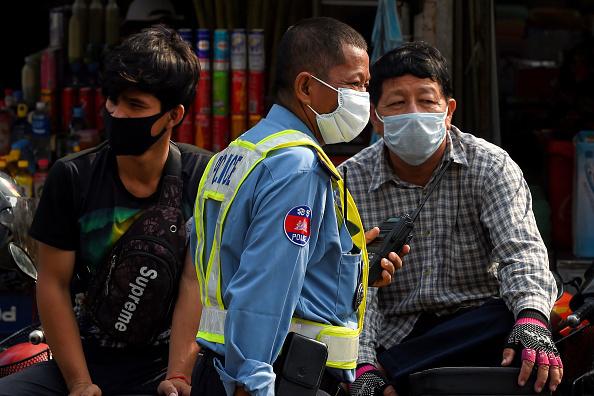
May 25, 2021 | News
The ICJ joined other international human rights organisations to call on the Cambodian government to immediately stop its assault on freedom of expression in the context of the COVID-19 pandemic.
In recent months, the government has warned against public criticism of its actions, prevented independent journalists from reporting on the pandemic, prosecuted individuals for criticising the inoculation campaign, and threatened journalists and social media users with legal actions on the spurious grounds of provoking “turmoil in society.
While Cambodia was spared from high numbers of severe COVID-19 cases in 2020, beginning in February 2021 there has been a spike in cases to which the government responded with disproportionate and unnecessary measures in violation of Cambodia’s international human rights obligations. This includes a campaign against freedom of expression that further constricts media freedom and promotes fear and self-censorship in the country. These measures serve to undermine, not advance, efforts to stop the spread of COVID-19.
The Cambodian authorities placed a de facto ban on independent reporting in Phnom Penh’s red zones—areas deemed to be high risk for COVID-19 transmission. On 3 May 2021, the Ministry of Information announced that only state media or journalists invited by the government would be permitted to report from red zones. The next day, the Ministry of Information issued a letter warning journalists not to disseminate information that could “provoke turmoil in society” and threatening legal action against those who disobey. The letter followed viral livestream footage from multiple Facebook news outlets of long queues of COVID-19 patients outside government treatment centres.
The government’s campaign to silence critical commentary has extended beyond journalists to ordinary people, in a manner incompatible with international human rights standards.
In a press release dated 1 May 2021, the Government Spokesperson Unit demanded the immediate cessation of social media posts intended to “provoke and create chaos” in the context of the COVID-19 pandemic, referring to such posts as “acts of attack” that must be punished. The press release concluded by praising the efforts of government officials to curb the spread of COVID-19 but did not provide any legal justification for imposing these possible restrictions on the right to freedom of expression.
On 30 April 2021, Kandal provincial authorities warned farmers in Sa’ang district not to post images of vegetables spoiling in their fields due to the closure of markets, stating that such communications are bad for morale. One farmer, Tai Song, was pressured by the provincial authorities to sign a document agreeing not to post such content again after he shared a photo on Facebook showing his vegetables rotting and stating that he had to clear and throw away his crops.
The Cambodian authorities have arrested dozens of individuals for expressing critical opinions about the government’s COVID-19 response, including at least six individuals for their criticism of the government’s vaccination campaign. One Chinese journalist, Shen Kaidong, was subsequently deported for publishing a story deemed ‘fake news’ in which multiple Chinese nationals reported receiving a text offering them the Sinopharm vaccine for a service fee.
Authorities have also prosecuted at least three individuals—Korng Sambath, Nov Kloem, and Pann Sophy—for posting TikTok videos criticising the use of Chinese-made vaccines under the new, overly broad and vague Law on Measures to Prevent the Spread of COVID-19 and other Serious, Dangerous and Contagious Diseases (the COVID-19 Law).
These actions are consistent with the government’s systematic and relentless crackdown on freedom of expression and information spanning far beyond the beginning of the COVID-19 pandemic. This latest surge contributes to the government’s broader efforts to silence all critical voices in Cambodia.
The right to freedom of expression is protected by Article 19 of the International Covenant on Civil and Political Rights, to which Cambodia acceded in 1992, and by Article 41 of Cambodia’s Constitution.
Protecting public health is the grounds on which the government is purporting to restrict freedom of expression. While there is a legitimate need to counter the spread of misinformation online to protect public health during a pandemic, this objective must be provided by a clear and accessible law and pursued using the least intrusive means, rather than unnecessary and disproportionate measures like unwarranted arrests, detentions, and criminal prosecutions.
In its General Comment 34, the UN Human Rights Committee emphasised the essential role of the media in informing the public and stated that “in circumstances of public debate concerning public figures … the value placed [on] uninhibited expression is particularly high.” A 2017 Joint Declaration of four independent experts on freedom of expression stressed that “general prohibitions on the dissemination of information based on vague and ambiguous ideas” are incompatible with international human rights standards.
Download
To read the full statement with a list of co-signatories, click here.
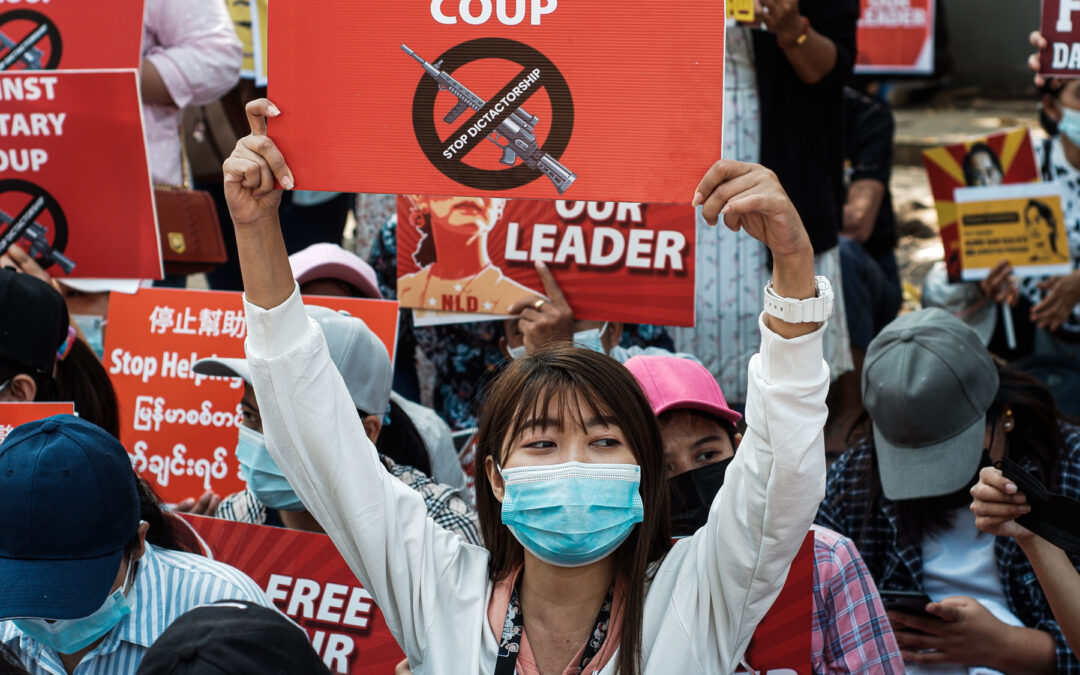
May 21, 2021 | News
The Myanmar military government must urgently reverse recent amendments to the Legal Aid Act that place impermissible restrictions on legal defense for detainees, particularly for those detained on criminal charges, and already vulnerable people such as stateless people, asylum seekers, and migrants, said the ICJ today.
The ICJ stressed that military regime was unlawfully assuming legislative powers it did not possess, in defiance of the core principle of separation of powers.
“The Myanmar military has usurped power illegally and now it is improperly changing the laws to make it even more difficult to get legal aid necessary to defend the rights of thousands of people facing arbitrary arrest and detention,” said Sam Zarifi, ICJ’s Secretary General.
In May 2021, the military regime made key amendments to the 2016 Legal Aid Law, formally entitled The Pyidaungsu Hluttaw Law No. 10, 2016, The 9th Waning Day of Pyartho, 1377, M.E.
The new amendment removes legal aid services at least during pre-trial detention, a critical phase when detainees are particularly at risk of arbitrary detention, torture and ill-treatment and other forms of coercion and tampering with evidence.
The amendments to Section 2(b) prevent all persons from certain vulnerable groups from receiving legal aid, including but not limited to stateless persons, asylum seekers, foreigners, migrant workers.
“These amendments will prevent legal aid for precisely the people who need it most, those facing criminal charges and those from marginalized groups, at precisely the time they need it most, during the pretrial detention when their rights are most at risk,” Zarifi said.
All reference to international standards have been removed as per Section 3(b), thus leaving the terms unbound by normative requirements and restrictions and more vulnerable to be subjected to arbitrary decisions of the Government. The revocation of 3(e) means that the fair standards and procedures concerning how long victims can be arrested and kept in custody do not have to be adhered to.
“In the context of Myanmar, where those pro-bono lawyers and organizations representing detainees continue to face threats, intimidation, abduction and arrest warrants, the possibility of getting legal defense through the legal aid system is critically important to provide access to justice to those thousands of detainees to ensure their right to equality before the law, the right to legal counsel and the right to a fair trial,” Zarifi said.
The United Nations Principles and Guidelines on Access to Legal Aid in Criminal Justice System requires all States to guarantee the right to legal aid in their national legal systems, without discrimination on any grounds.
The latest amendments have removed all independence of the legal aid bodies, and instead given full control to the Supreme Court, supported by the Cabinet—both bodies dominated by the military.
“With a number of lawyers being arbitrarily detained in recent days, these new amendments are another threat tactic by the military, to ensure that those are arrested and detained do not get a fair trial,” Zarifi added.
Contact
Osama Motiwala, ICJ Asia-Pacific Communications Officer, t: +66-62-702-6369 e: osama.motiwala(a)icj.org
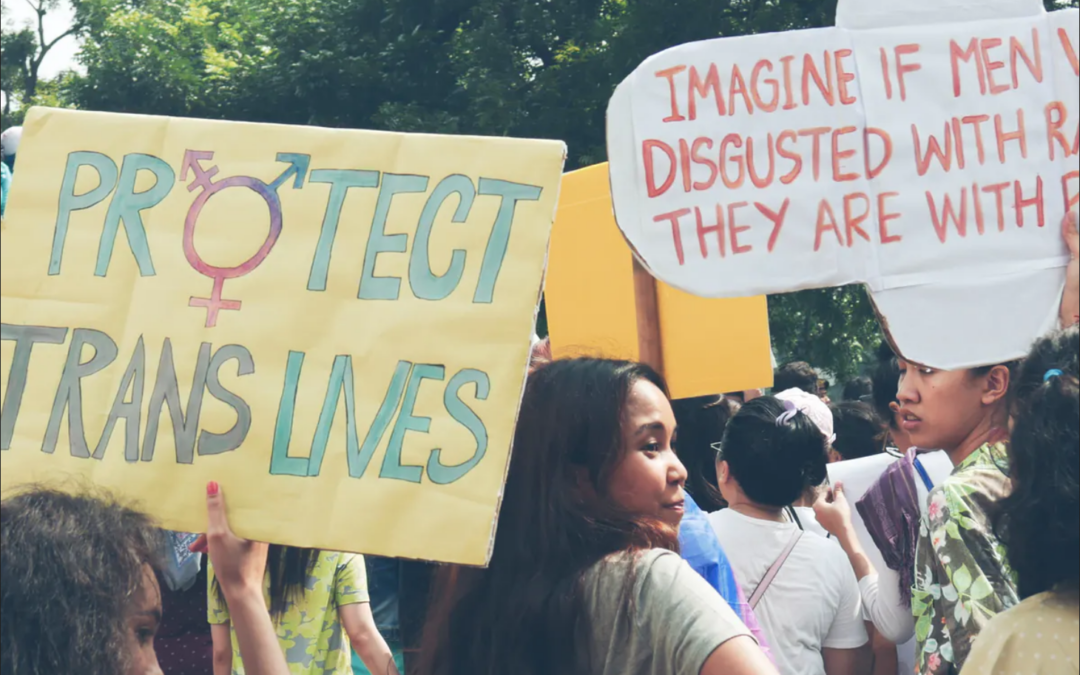
May 17, 2021 | News
LGBTI people in Indonesia, particularly trans women, face significant discrimination in access to Covid-19 vaccines as the country rolls out its vaccination programme in the face of a surge in the pandemic, the ICJ said today.
Indonesia is planning to start vaccinating the general population in July and an electronic identity card (e-KTP) is required to be vaccinated. However, most trans women do not have, or cannot obtain, an e-KTP and are thus unable to access the COVID-19 vaccines.
“As we mark the International Day against Homophobia, Transphobia and Biphobia on 17 May, Indonesian authorities must ensure that LGBTI communities, trans women in particular, are not excluded from access to vaccines,” said Ruth Panjaitan, ICJ Legal Adviser for Indonesia.
To get an ID card, trans women need to present a Family Card, a document issued to the head of the family. However, many, trans women or waria have been kicked out of or fled their family homes without formal documents as a result of domestic violence. Between 50-60% of transwomen senior citizens reportedly do not have e-KTP, which makes it difficult for them to access government’s healthcare service, including COVID-19 vaccination.
“Most waria in Indonesia don’t even have an ID card let alone an e-KTP. The current system compounds the discrimination against trans women with the heightened risk of illness due to Covid-19. Indonesian authorities must urgently reform the e-KTP system to facilitate the legal status of people based on their own self-identified gender identity,” Ruth Panjaitan said.
Trans women who want to process their e-KTP in accordance with their gender identity have to first obtain an affirmation of their gender from a court, as the e-KTP does not recognize transgender. There is currently no definite and clear regulation for the legal gender change under Indonesia’s law or Supreme Court regulations, so the determination will depend on individual judges in each court’s jurisdiction. LGBTI activists have noted that in practice many judges apply arbitrary religious-based criteria to reject the petition to change gender. In most cases, the court that takes on the application still requires a doctor’s medical certificate that the petitioner has conducted gender reassignment surgery or other hormonal treatment as well other onerous document requirements, such as a psychiatric evaluation and witness information.
“These intrusive, arbitrary, prolonged and burdensome procedures make it even more difficult for trans women in Indonesia to get legal recognition of their gender identity, and lack of recognition of gender identity before the law blocks their access to health care,” Ruth Panjaitan said.
The Indonesian authorities have recently started their effort to reach out to transgender people in order for them to be registered in accordance with Law No.24 year 2013 and Law No.23 year 2006 regarding Civil Administration, which mentions that all Indonesian citizens have to be registered and that they have to have both ID and Family Card, so that they can get a good public service. However, the current system still falls short under international law to protect transgender people.
“Excluding and marginalizing trans women in the middle of a pandemic aggravates the longstanding discrimination they have faced from the Indonesian government, and it is also counterproductive to an effort to vaccinate as many people as possible to stop the spread of the disease,” Ruth Panjaitan said.
Additional information
Transgender people in Indonesia have a right to nondiscriminatory access to vaccines and overall rights to health, which is protected under Article 12 of the International Covenant on Economic, Social, and Cultural Rights (ICESCR) to which Indonesia is party. The UN Committee on Economic, Social and Cultural Rights has affirmed that all healthcare goods, facilities, and services must be available, accessible, acceptable and of adequate quality, especially to the most vulnerable or marginalized sections of the population, in law and in fact, without discrimination of any of the prohibited grounds.
Under international human rights law and standards, a person’s declaration of their preferred gender identity for the purpose of obtaining gender recognition should not require validation by a medical expert, judge or any other third party. Requiring someone seeking legal recognition of their self-identified gender to undergo treatment is a breach of their right to protection against attacks on their dignity and physical and mental integrity, guaranteed under the ICESCR and the International Covenant on Civil and Political Rights, to which Indonesia is a party.
As affirmed by the Yogyakarta Principles, which address the human rights of LGBTI persons, gender identity is a private matter, concerning someone’s deeply felt individual conviction, which should not be subject to arbitrary third-party scrutiny. Legal gender recognition processes protecting the rights of transgender people must be conducted without medical requirements and it must be quick, transparent, and accessible, and effectively uphold the rights of transgender people, including their right to self-determination.
As of 10 May 2021, Indonesia has reported more than 5,000 new infections on average each day and 1,718,575 cumulative confirmed COVID-19 cases. The figure brought the country to the fourth position of countries with highest cases in Asia. The inoculation programme kicked off in mid-January for those deemed to be high priority, such as health workers, the police and military, and other public workers. The proportion of Indonesia’s total population that has received at least one dose of a vaccine as at 4 May 2021 was 4.64 per cent.
Contact
Ruth Panjaitan, Legal Adviser for Indonesia, e: ruthstephani.panjaitan(a)icj.org
Download
Press Release in Bahasa Indonesia.
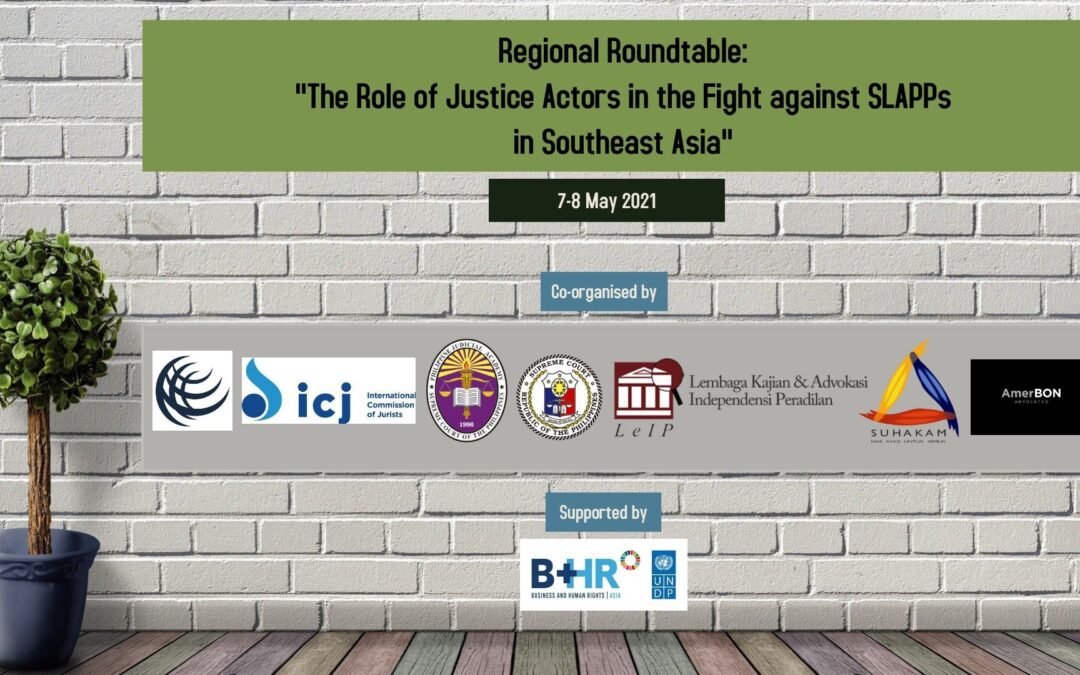
May 9, 2021 | News
Southeast Asian governments must diminish the misuse of lawsuits to harass and silence civil society, so-called SLAPP suites, said more than 70 international experts, judges, public prosecutors, lawyers, members of civil society organizations, academics, and members of executive and State institutions from Indonesia, Malaysia, the Philippines, and Thailand at a discussion convened by the ICJ and partners on 7 and 8 May.
The participants at the regional dialogue on “The Role of Administration of Judicial Authorities and Legislators in the Fight against Strategic Lawsuits Against Public Participation (SLAPPs) in Southeast Asia” addressed the proliferation of SLAPP suits, which SLAPP suits are undertaken with the principal objective of curtailing or deterring public criticism or opposition to certain activities by the entity initiating the legal action. SLAPP lawsuits typically have a “chilling effect” on the exercise of freedom of expression and other human rights and fundamental freedoms, including freedom of opinion and expression (article 19 of the International Covenant on Civil and Political Rights); freedom of peaceful assembly (article 21); and the right to take part in the conduct of public affairs (article 25).
Irene Khan, Special Rapporteur on the promotion and protection of freedom of opinion and expression, stated that it is necessary to bring exiting laws in compliance with international law and standards, including with the principles of legality, proportionate, necessity, legitimate purpose, and non-discrimination, and called for defamation laws to be decriminalized.
Prof. Surya Deva, Vice-Chairperson, the Working Group on the issue of human rights and transnational corporations and other business enterprises, referred to several anti-SLAPP provisions that, in his view, are inadequate, including section 161/1 and 165/2 of Thailand’s Criminal Procedure Code. He pointed out that while the legal reform needed, States also need to train relevant stakeholders who will make use of these. Internal or soft guidance can also be a helpful guideline on how to exercise discretion, and more resources should be allocated to raise awareness.
Several participants, while noting their duties to protect rights to access to justice and the power imbalance between the parties in SLAPP lawsuits, called for a robust legal frameworks and policies that prevent the filing SLAPPs in the first place and allow relevant authorities to identify, call out and dismiss them as soon as they are filed.
In the jurisdictions where such mechanisms exist, participants highlighted the need to address certain gaps to allow authorities to promptly and effectively exercise their power, and the importance of guidelines that can guide the relevant authorities on how to handle and proceed with SLAPPs in a coordinated effort to raise awareness among justice sector actors on this topic.
In the absence of a specific Anti-SLAPP legislation, participants also shared their experience using existing tools in their domestic laws as a basis in combating SLAPPs, including several provisions of the constitutions, other early dismissal mechanism provided in procedural laws, provisions under international laws, and encouraged their peers to think out of the box.
Reforming individual causes of action that commonly form the basis of SLAPPs, such as defamation, to ensure their compliance with international law and standards were also discussed by participants as another approach that the governments should consider, in combination with other measures.
Remedies for persons negatively affected by SLAPP lawsuits were encouraged.
The Workshop was conducted in collaboration with Business & Human Rights Resource Centre (BHRRC); Philippine Judicial Academy; the Supreme Court of the Republic of the Philippines; Lembaga Kajian dan Advokasi Independensi Peradilan (Indonesian Institute for Independent Judiciary or LeiP); Human Rights Commission of Malaysia (SUHAKAM) and AmerBON Advocates.
The speakers at the workshop were: representatives of all partner organizations; Nikhil Dutta, Global Programs Legal Advisor of the International Center for Not-for-Profit Law (ICNL); Joel Hernández García, Inter-American Commission on Human Rights’ Rapporteur on the Rights of Human Rights Defenders and Justice Operators; Irene Khan, Special Rapporteur on the promotion and protection of freedom of opinion and expression; and Prof. Surya Deva, Vice-Chairperson, the Working Group on the issue of human rights and transnational corporations and other business enterprises.
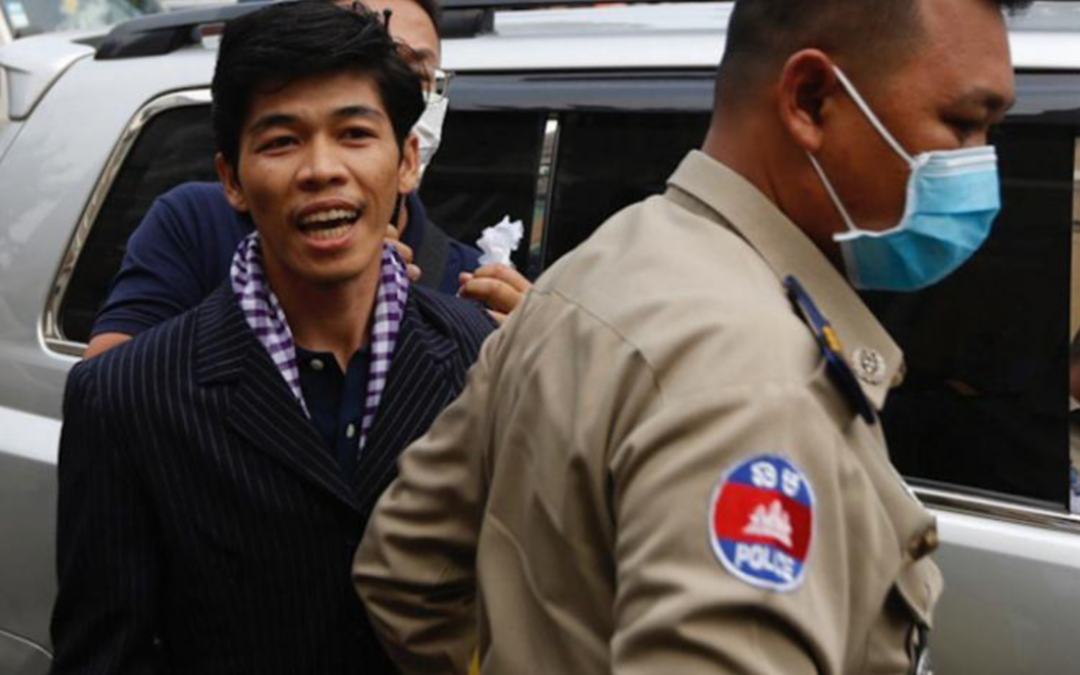
Apr 21, 2021 | News
Journalists and media workers face an increasingly repressive legal landscape amidst the COVID-19 pandemic in Cambodia, Thailand and Vietnam, as outlined by the ICJ in a submission to the Office of the United Nations High Commissioner for Human Rights (OHCHR).
“Laws in Cambodia, Thailand and Vietnam that do not comply with human rights law and standards have served to shrink the civic space in which the media operate,” said Sam Zarifi, ICJ’s Secretary General. “This stands to undermine the media’s crucial work in performing their investigative functions and their capacity to impart information to the public.”
The ICJ highlighted in particular how new laws have been enacted in response to the COVID-19 pandemic that aim at or can be used by State authorities to control information about the pandemic. These laws contain provisions incompatible with human rights law and standards as their vague language makes them prone to abuses. In addition, some prescribe excessive sanctions, including severe criminal penalties, which are incompatible with the principles of necessity and proportionality.
The ICJ also underscored how the authorities in the three States continued abusing existing non-human rights compliant laws to arbitrarily restrict information and expression during the pandemic, by targeting journalists and social media users.
Although the ICJ recognizes the necessity to combat the spread of false information online to protect public health during the uncertainty of a pandemic, this objective can and must be carried out using the least intrusive means, rather than unnecessary and disproportionate measures like arrests, detentions, criminal prosecutions and onerous fines.
The submission called for the OHCHR to continue engaging with the relevant authorities in these three countries to better safeguard in law and practice the safety and work of journalists and media workers, and the right to health and right to freedom of expression and information.
This submission is aimed at providing the OHCHR information for a report it is preparing for the UN Human Rights Council pursuant to its Resolution 45/18 on the safety of journalists.
Download
The full submission is available in English here. (PDF)
Contact
Osama Motiwala, ICJ Asia-Pacific Communications Officer, e: osama.motiwala(a)icj.org
See also
ICJ, ‘Southeast Asia: ICJ launches report on increasing restrictions on online speech’, 11 December 2019
ICJ, ‘New ICJ global report shows that the right to health must be central to State responses to COVID-19’, 1 September 2020
ICJ, ‘Vietnam: authorities must act to safeguard rights online and end harassment of those expressing themselves – ICJ new report’, 9 December 2020










